If you are here reading this, odds are you’re trying to get into sound editing. Whether it’s for a movie group, a hopeful future in the film industry as another Hans Zimmer, a career in audio creation and editing, or simply for creating some ailing ringtones on your phone, an audio editing program will be in the heart of your installation; and that is where the issue actually lies — choosing a fantastic sound editing software, or a DAW can be quite a daunting task, what with all the selection of software available on the market. Some are free, some bring in extra features, some are specific to a specific operating system and what not. So, so as to assist you discover where you should spend your time and money, we have dredged through the many audio editing software to get the best ones, the crème de la crème if you will. So, here are 10 best music editing software you can check out.
Best Audio Editing Software
1. Adobe Audition
Adobe’s Audition is quite easily among the best music editing software you can get. The program comes with some extraordinary features which have been honed with the many years of expertise Adobe’s team has in creating powerful applications for specialist users. Audition includes features like multi-track mixing and editing that will certainly make your sound editing experience much easier and efficient. The software also has a feature called’Vehicle Ducking’ that uses Adobe’s proprietary AI established’Adobe Sensei’ technology to work out places where you might choose to reduce the quantity of a background track to be able to produce the vocals, address, etc seem clearer, making your job a lot easier to do. Audition also includes some strong clip editing attributes including things like mirrored fades, the capacity to keep coating stacks when moving a single piece of the pile, and far more.
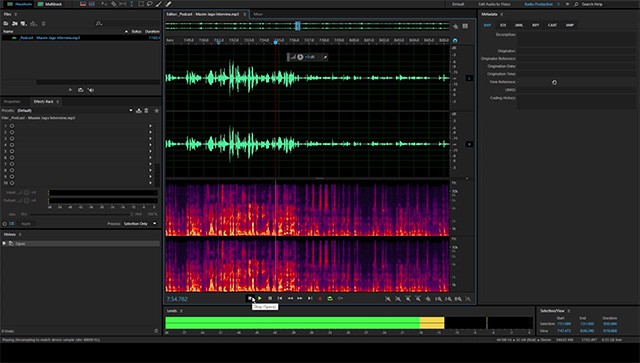
There are a bunch of plug-ins, and Adobe even has its very own series of tutorials surrounding Audition, which should definitely make it much easier for you to get started with the app. Along with all of that, the app has a really well thought out interface, and manages to look inviting even with all of the features it packs once you scratch the surface. Plus, it supports most of the audio formats out there like MP3, WAV, AC-3, AIF, AIFF, AIFC, AAC, HE-AAC, CAF, FLAC, PCM, OGG, WMA and more, along with support for video formats like AVI, MP4, MOV, FLV etc.
Pros:
- Wide array of features
- impressive UI
- Good fit for people looking to edit voice-overs, or video related audio tasks.
Cons:
- Too many features for beginners to easily understand and make use of.
- Not a good fit for people looking to produce music.
- Subscription based software
Availability: Windows and macOS
Price: Free trial available; subscription starts at $20 per month
2. Logic Pro X
Evidently, an article about innovative applications will mention Apple in 1 way or another. Logic Pro X, which is Apple’s DAW for systems running macOS would have been my choice for the best audio editing applications, but because it is only available on macOS, it attracts down its accessibility by quite a bit (not each artist uses a Mac, after all). Having said that, Logic Pro X brings some incredibly awesome features into the fold which make it an wonderful audio editing program for both start editors, and professional users. Logic Pro X includes all the basic features you will ever need in a sound editor, and also brings exceptionally advanced features such as the ability to automatically match the timing of different tracks in a project using’Smart Tempo.’
The program also brings’Flex Time’ that enables you to edit the time of a single note at a waveform separately , without needing to slice it from the clip itself. That is insanely incredible and will allow you to fix that mistimed beat with minimal effort. There is also’Flex Pitch’ that does the exact same thing for individual beats, except with pitch rather than timing. Additionally, there are a ton of pre-recorded sounds, and patches which you can freely use on your workflow, together with Apple’s insane quantity of plug-ins that are sent with Logic Pro X (there is over 60GB of further assets you get together with LPX!) .
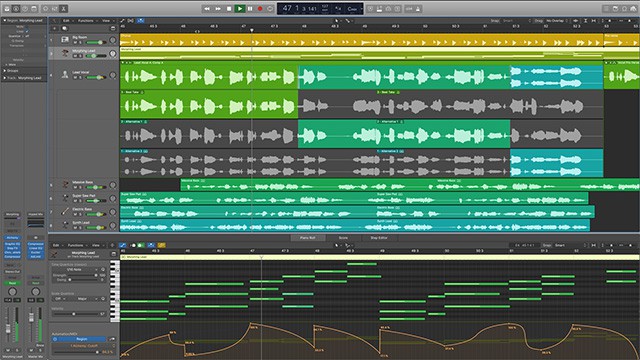
Pros:
- Works like a charm on Mac
- Feature rich, and has a variety of plugins.
- Control over singular notes as well, if needed.
- Has a ton of tutorials.
Cons:
- Mac only
- Quite expensive at $199
- Can be overwhelming if you’ve never used Garageband before.
Availability: macOS only
Price: $199.99
3. Reaper
Reaper is still another audio editing software that is incredibly powerful and feature rich while also being relatively less expensive than a number of the alternatives on this list. For starters, Reaper includes support for several monitors, and contains a remarkable multichannel support with 64 channels in each monitor . Additionally, it brings the ability to directly record audio to mono, stereo, as well as multichannel audio files, in addition to the capability to record to multiple disks at the exact same time for data redundancy if that is something you want.
With Reaper you can apply effects in a real time, non-destructive manner, insert virtually any third party or MIDI plug in, and even brings real-time pitch shifting and time stretching capabilities into the mixture. Reaper also supports many popular file formats along with some not-so-popular file formats on the market.
Aside from all of the performance, Reaper’s interface is totally customizable so that you can make it look just how you like it.

Pros:
- Feature rich
- brings Logic Pro X like pitch shifting and time shifting
- Comparatively more affordable than other powerful audio editing software
- Comprehensive tutorials on the website.
Cons:
- UI isn’t as good as Audition or LPX.
- Not aimed at beginners.
Availability: Windows, macOS, and Linux (experimental)
Price: Free trial available; license starts at $60
4. Ableton Live
Ableton Live can also be a name that is synonymous with music creation and that is pretty obvious considering the amazingly high number of features it brings. For starters, Ableton Live supports unlimited audio and MIDI tracks so that you can stuff as many layers of paths into your job as you require. There is also support for MIDI catch, 256 mono input channels and 256 mono output stations . Along with that, you get up to 70GB of pre-recorded sounds you can use on your projectsup to 15 applications instruments, as well as 46 audio results.
However, Ableton Live does not come with a few attributes that are commonplace in most other music editing program. There is no pitch correction, and adding effects such as fades is not as simple as it is on other applications such as Logic Pro X. However, Ableton Live remains among the highly regarded DAWs particularly for digital music production, so if that is what you are getting into you should definitely take a look.
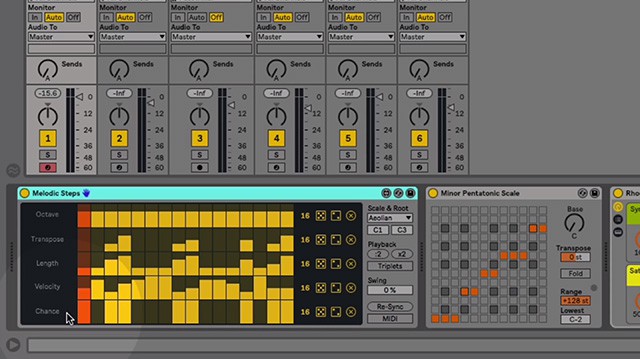
Pros:
- One of the leading names in electronic music production
- Feature packed
- Support for unlimited tracks
- A huge library of pre-recorded sounds that you can use.
Cons:
- Missing some basic features like pitch correction.
- Makes tasks like adding fades more difficult than they need to be.
- UI is quite below par as compared to the competition.
Availability: Windows and macOS
Pricing: 30 day free trial; pricing starts at $99
5. Cubase
Cubase, from Steinberg, is just another sound editing software which you may wanna have a look at. The DAW includes a heritage of important artists having used it like the likes of Zedd, Junkie XL and more. There is a frequency equalizer that allows you perform exceptionally delicate frequency edits to your tracks, an Auto-Pan attribute which lets you play around with your own tracks.
Additionally, should you use plug-ins, Cubase’s Plugin Sentinel will automatically scan themon startup to ensure they are valid and won’t damage your system. There is also a feature called Audio-ins that allows you use effects and filters individually in your audio tracks. Cubase offers a free trial so you can test it out before deciding if you would like to get it or not.
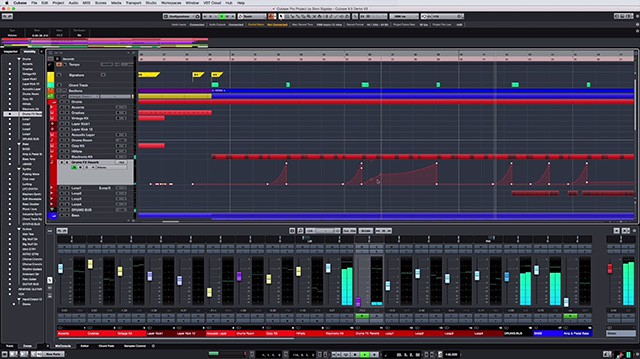
Pros:
- Comes with some pretty awesome features.
- Has frequency equalizer to perform delicate edits.
- Plugin Sentinel ensures safety of your system.
Cons:
- Not meant for beginners.
Availability: Windows and macOS
Price: free trial available; pricing starts at €99
There are obviously a lot of those applications, but for your basic needs these should prove plentiful. So now you know about the 5 best sound editing software you can use, which one are you considering giving a shot?

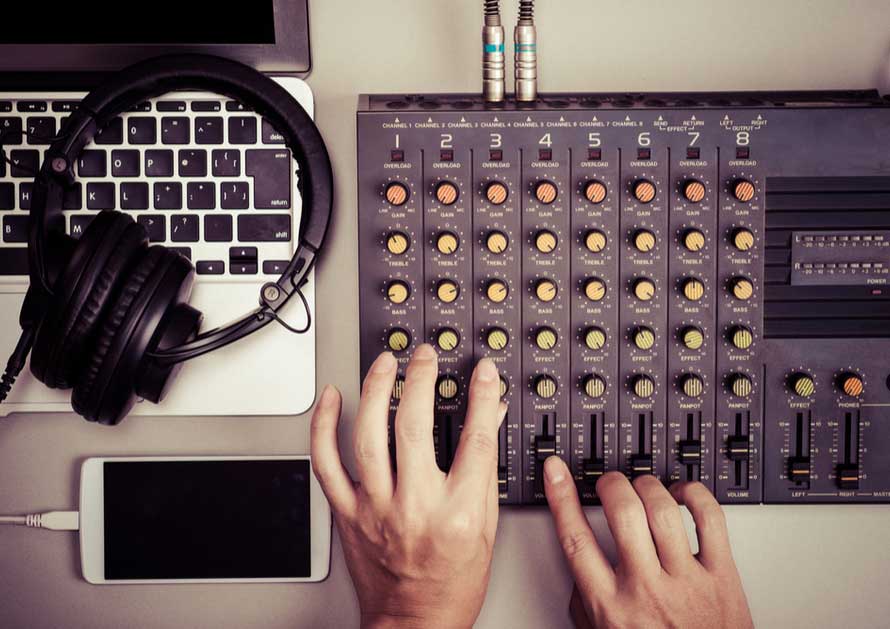
COMMENTS